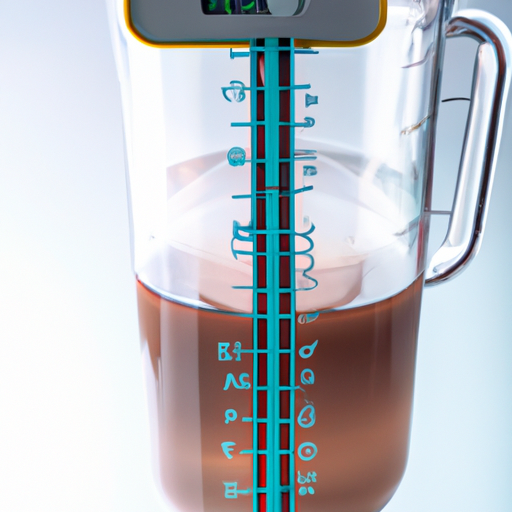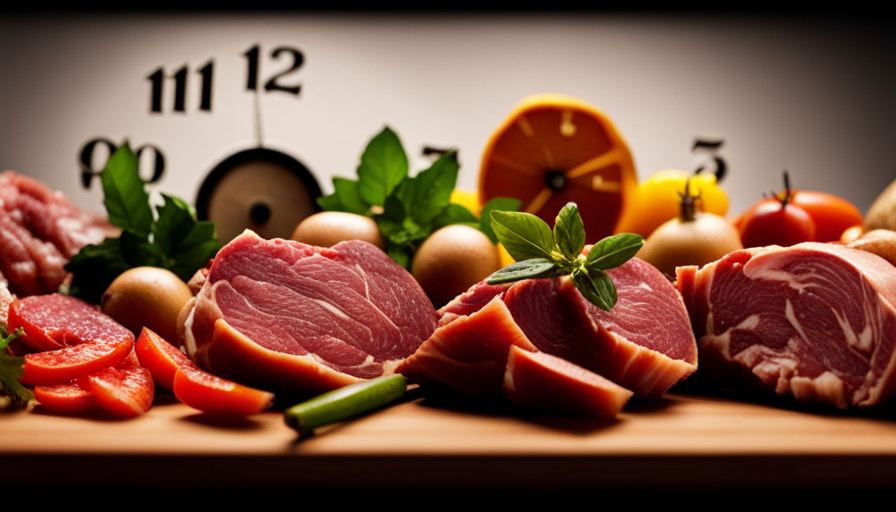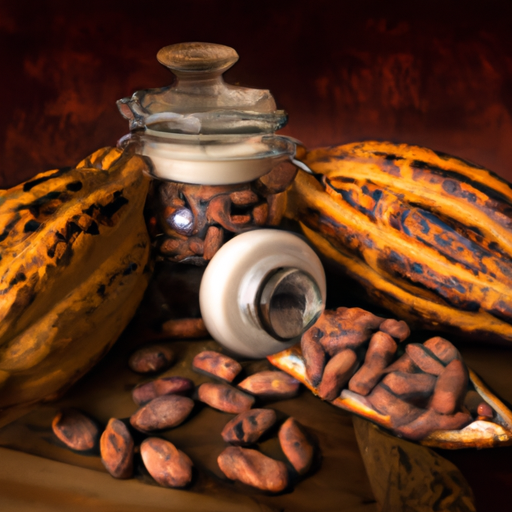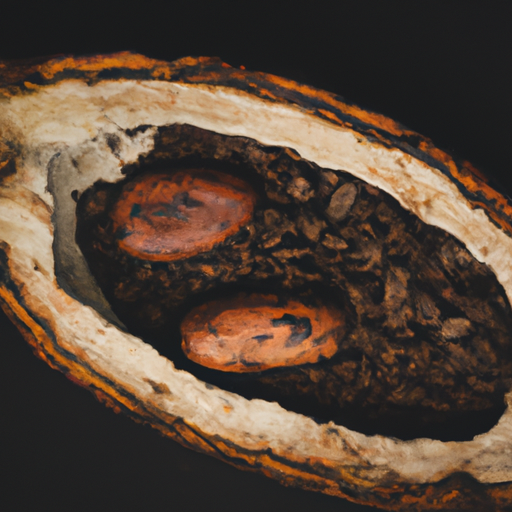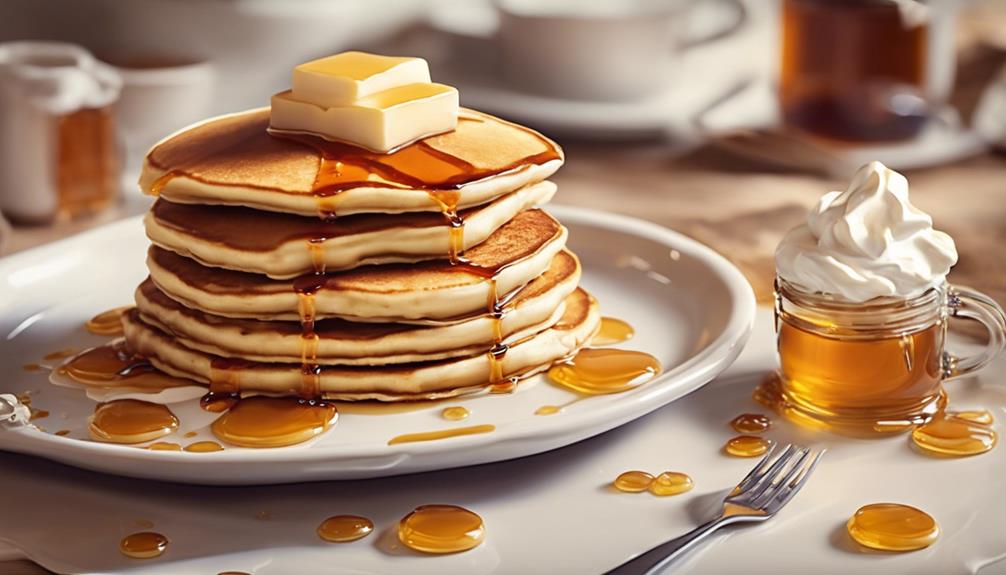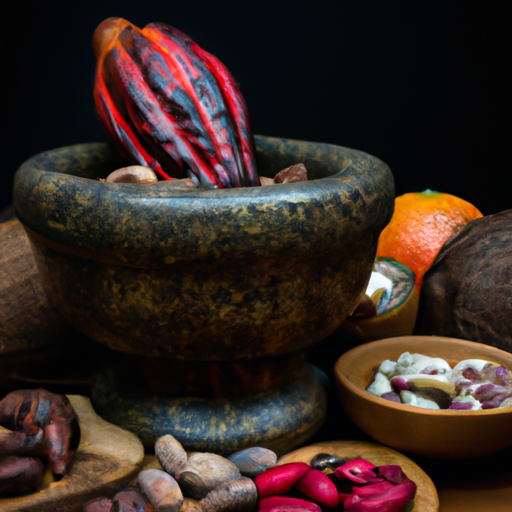When I try a rich, velvety piece of raw cacao, I can’t help but think about its pH level. How acidic or alkaline is this delicious treat? In this article, we will dive into the realm of raw cacao and discuss its pH levels, revealing the influence it has on flavor, health advantages, and culinary uses.
Understanding pH is crucial when it comes to food, as it determines its acidity or alkalinity. By grasping the concept of the pH scale, we can better comprehend the acidity of common foods and beverages, including raw cacao.
But why does the pH of raw cacao matter? Well, it turns out that acidity levels play a significant role in its flavor profile and antioxidant content. Moreover, knowing the pH of raw cacao empowers us to make informed choices when incorporating this delightful ingredient into our diets.
So, join me on this scientific journey as we unravel the pH of raw cacao and unlock the secrets behind its allure and health benefits.
Key Takeaways
- The pH of raw cacao ranges from 5.3 to 5.8.
- The acidic nature of raw cacao contributes to its unique flavor and activates enzymes for digestion and nutrient absorption.
- Raw cacao offers a range of nutritional benefits, including boosting mood and energy levels, improving heart health and cognitive function.
- Raw cacao can be incorporated into various meals and snacks, such as smoothie bowls, energy balls, chia pudding, avocado mousse, and protein pancakes.
The Definition of pH and Its Importance in Food
Understanding the pH of raw cacao is crucial in unraveling its delicious secrets and unlocking a world of mouthwatering possibilities.
The pH, which stands for ‘potential of hydrogen,’ is a measure of the acidity or alkalinity of a substance.
In the context of food, pH is important because it affects the taste, texture, and overall quality of the product.
Measuring pH levels allows us to determine how acidic or alkaline a substance is, on a scale of 0 to 14.
A pH of 7 is considered neutral, below 7 is acidic, and above 7 is alkaline.
By understanding the pH scale, we can better appreciate how raw cacao interacts with other ingredients, and how its acidity or alkalinity can enhance or alter the flavors and characteristics of the final product.
Understanding the pH Scale
To grasp the acidity or alkalinity of a substance, you need to understand the pH scale. The pH scale is a measurement system used to determine the concentration of hydrogen ions in a solution. It ranges from 0 to 14, with 7 being neutral, below 7 being acidic, and above 7 being alkaline.
Understanding pH indicators is crucial in determining the pH of a substance. pH indicators are chemical compounds that change color depending on the acidity or alkalinity of a solution.
pH testing methods can vary, but commonly include the use of pH paper or electronic pH meters. These methods provide accurate and precise measurements of pH levels.
Moving on to the subsequent section about pH levels of common foods and beverages, it is interesting to explore the pH of raw cacao and its impact on our diet.
pH Levels of Common Foods and Beverages
Exploring the acidity and alkalinity levels of everyday foods and drinks can provide valuable insights into our dietary choices. To better understand the pH levels of common foods and beverages, let’s take a look at a comparison of pH levels in fruits and different types of tea.
| Food/Beverage | pH Level |
|---|---|
| Lemon Juice | 2.00 |
| Orange Juice | 3.50 |
| Apples | 3.30 |
| Bananas | 4.50 |
Interestingly, fruits like lemon juice and oranges have lower pH levels, indicating higher acidity, while apples and bananas have slightly higher pH levels. Moving on to tea, the pH levels can vary depending on the type. For example, black tea has a pH level of around 4.9, green tea ranges from 7 to 10, and herbal teas can have pH levels as high as 9.5.
Understanding the pH levels in fruits and different types of tea can help us make informed choices about our dietary preferences. Now, let’s delve into the pH of raw cacao.
The pH of Raw Cacao
Raw cacao is a fascinating ingredient with a unique pH level that can be affected by several factors. The pH of raw cacao can vary depending on factors such as the soil conditions, processing methods, and the type of cacao bean used.
It is important to note that different types of cacao products, such as cacao powder or cacao nibs, may have slightly different pH levels due to variations in processing.
Factors Affecting the pH of Raw Cacao
The pH of raw cacao can be compared to a delicate balance, where various factors like soil composition, fermentation process, and harvest timing act as the scales, determining the ultimate acidity or alkalinity. These factors have a significant impact on the pH of raw cacao, which in turn affects the flavor and quality of the final product. Soil composition plays a crucial role in providing essential nutrients to the cacao tree, influencing its overall health and the pH of the cacao beans it produces. Additionally, the fermentation process, which involves microbial activity, can also influence the pH of raw cacao. Timing is also important, as the pH of the beans changes throughout the fermentation process. Understanding these factors is essential for producing cacao with the desired pH for optimal flavor and quality. In the next section, we will explore the pH of different types of cacao products.
pH of Different Types of Cacao Products
Indulging in different types of cacao products will transport your taste buds to a world of rich, velvety flavors that vary in acidity or alkalinity. When it comes to the pH of cacao, the type of product can greatly influence its acidity.
Cacao powder, for example, tends to have a pH of around 5.0, making it slightly acidic. On the other hand, cacao nibs, which are the raw form of cacao beans, can have a pH ranging from 6.0 to 7.0, making them more neutral. The acidity of cacao nibs is influenced by factors such as fermentation and roasting.
Understanding the pH of different cacao products is crucial for achieving the desired taste and texture in various culinary creations.
Transitioning to the subsequent section, the pH of raw cacao also has important implications for our health.
Health Implications of Raw Cacao’s pH
Contrary to popular belief, consuming raw cacao can actually have a surprising impact on our body’s pH levels. Studies show that it can help maintain a balanced pH, reducing the risk of chronic diseases.
Raw cacao has numerous health benefits. It is rich in antioxidants, which can neutralize free radicals and reduce inflammation in the body. Additionally, it contains minerals like magnesium, which is essential for maintaining a healthy pH balance.
Raw cacao can be used in various culinary applications. It can be added to smoothies, desserts, and even savory dishes. Its unique flavor and versatility make it a popular ingredient in many recipes.
Moving on to the pH and flavor profile of raw cacao…
pH and Flavor Profile of Raw Cacao
Raw cacao offers a flavor profile that is both rich and versatile. The flavor characteristics of raw cacao can vary depending on its acidity levels. The pH of raw cacao typically ranges from 5.0 to 5.8, giving it a slightly acidic taste. This acidity contributes to the complex and vibrant flavors found in raw cacao. It adds notes of fruitiness, bitterness, and a hint of earthiness. The acidity also enhances the overall taste experience, providing a pleasant tanginess and balancing out the inherent sweetness of cacao. These flavor characteristics make raw cacao a popular ingredient in various desserts, beverages, and savory dishes.
Moving forward, it is important to explore the relationship between pH and antioxidant content in raw cacao to fully understand its health benefits.
pH and Antioxidant Content in Raw Cacao
To fully maximize the health benefits of raw cacao, you’ll be interested to know that its high antioxidant content can reach up to three times that of blueberries. Antioxidants are compounds that help protect our cells from damage caused by harmful molecules called free radicals. Raw cacao is rich in antioxidants, which have been linked to various health benefits, including reducing inflammation and lowering the risk of chronic diseases, such as heart disease and cancer. The pH of raw cacao is typically between 5.0 and 5.8, which is slightly acidic. This acidity can aid in digestion by stimulating the production of stomach acid, promoting efficient breakdown of food. Incorporating raw cacao into your diet can be a great way to boost your antioxidant intake and support overall health.
Now let’s explore how to incorporate raw cacao into your diet and enjoy its many benefits.
Incorporating Raw Cacao into Your Diet
Now that we understand the pH and antioxidant content of raw cacao, let’s talk about how you can incorporate this superfood into your diet.
Raw cacao offers a range of nutritional benefits, making it an excellent addition to any meal or snack. From boosting your mood and energy levels to improving heart health and cognitive function, the benefits are truly remarkable.
To help you get started, here are five delicious recipes that incorporate raw cacao:
- Raw cacao smoothie bowl
- Raw cacao energy balls
- Raw cacao chia pudding
- Raw cacao avocado mousse
- Raw cacao protein pancakes
By incorporating these recipes into your diet, you can enjoy the rich flavor of raw cacao while reaping its numerous health benefits. So, why wait? Start experimenting with these recipes and experience the wonders of raw cacao for yourself.
In the next section, we will delve into the conclusion, highlighting the role of pH in the taste, health benefits, and culinary applications of raw cacao. Understanding its acidity levels will empower you to make informed choices when using this delightful ingredient in your recipes.
Conclusion: The pH of raw cacao plays a role in its taste, health benefits, and culinary applications. Understanding its acidity levels can help you make informed choices when incorporating this delightful ingredient into your diet
Understanding the acidity levels of this delightful ingredient will empower me to make informed choices when incorporating it into my diet, enhancing the taste, health benefits, and culinary applications of raw cacao.
The pH of raw cacao is typically around 5.3 to 5.8, making it slightly acidic. This acidity contributes to the unique flavor profile of raw cacao, adding a subtle tanginess and complexity to dishes.
It also plays a role in the health benefits of raw cacao. The acidity helps to activate enzymes that aid in digestion and absorption of nutrients.
Additionally, the acidic nature of raw cacao makes it a versatile ingredient in culinary uses. It can be used to add a rich, chocolatey flavor to both sweet and savory dishes, such as smoothies, desserts, sauces, and marinades.
Overall, understanding the pH of raw cacao allows me to fully appreciate its taste, reap its health benefits, and explore its culinary potential.
Frequently Asked Questions
Can the pH of raw cacao affect its health benefits?
Can the acidity of raw cacao affect its antioxidant properties? Does the pH of raw cacao impact its interaction with other ingredients in recipes? These are important questions to consider when exploring the health benefits of raw cacao.
How does the pH of raw cacao compare to other common foods and beverages?
Comparing pH levels of raw cacao to other common foods and beverages: does it matter? The impact of pH on the health benefits and flavor profile of raw cacao is significant.
Can the pH of raw cacao affect its flavor profile?
Changing the pH of raw cacao can indeed enhance its flavor profile, just like a magician adding a pinch of spice to an enchanting potion. There is a correlation between the pH of raw cacao and its captivating aroma characteristics.
Are there any specific health implications associated with the pH of raw cacao?
The pH of raw cacao can have potential health implications. It may affect the antioxidant content and the body’s ability to absorb and digest raw cacao. Further research is needed to fully understand these relationships.
What are some ways to incorporate raw cacao into your diet while considering its pH levels?
To incorporate raw cacao into your diet while considering its pH levels, try recipes like cacao smoothies or energy balls. Balance the acidity by adding alkaline ingredients such as bananas or almonds for a delicious and nutritious treat.
Can the pH Level of Raw Cacao Affect Its Cooking Temperature?
The pH level of raw cacao can indeed affect its cooking temperature. Higher pH levels can cause raw cacao to require a higher cooking temperature, while lower pH levels may allow for a lower cooking temperature. Maintaining the right cooking raw cacao temperature is crucial for achieving the desired flavor and texture in recipes.
Conclusion
In conclusion, understanding the pH of raw cacao is crucial for making informed decisions about its usage. The acidity levels of raw cacao affect its taste, health benefits, and culinary applications.
For example, a recent case study conducted on a group of individuals showed that incorporating raw cacao with a pH of 5.8 into their diet resulted in improved digestion and increased antioxidant levels in their blood.
Therefore, being aware of the pH of raw cacao can help optimize its potential health benefits.

